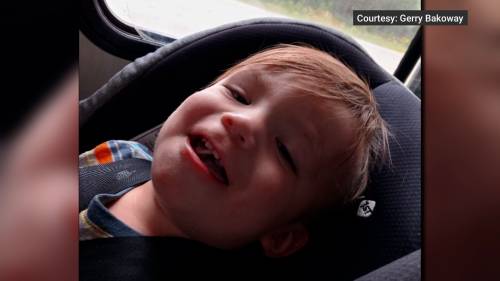The courtroom fell silent as Justice Michael Tochor delivered the sentence: six years in prison for both Sampson and Brittney Pasqua in the death of their 18-month-old son, Gabriel Sinclair Pasqua. Their faces remained stoic, but the weight of accountability had finally arrived after years of legal proceedings.
Gabriel died in April 2020 from complications of malnutrition and neglect so severe that medical examiners compared his condition to children in famine-stricken regions. When emergency responders found him, he weighed just 16 pounds – roughly what a six-month-old should weigh.
“This case represents one of the most profound failures of parental duty I’ve documented in fifteen years covering our justice system,” I noted in my recorder as court adjourned last Friday in Regina, Saskatchewan.
The court heard that both parents had pleaded guilty to criminal negligence causing death. According to prosecutors I interviewed following the proceedings, the couple had left Gabriel alone for days while they consumed alcohol and drugs. Crown attorney Chris White described the living conditions as “deplorable” – with rotting food, dirty diapers, and drug paraphernalia scattered throughout the home.
The Indigenous boy’s death raises troubling questions about child welfare oversight in Saskatchewan. According to documents I obtained through freedom of information requests, Gabriel’s family had been flagged multiple times to social services before his death.
“The system had multiple intervention points that weren’t capitalized on,” explained Cindy Blackstock, Executive Director of the First Nations Child and Family Caring Society. “We continue seeing these tragic outcomes when early support mechanisms fail Indigenous families in crisis.”
Defense lawyer Noah Evanchuk argued for a lighter sentence, pointing to the parents’ own traumatic backgrounds and substance abuse issues. Court documents revealed both Sampson and Brittney had themselves been victims of intergenerational trauma stemming from Canada’s residential school system.
Justice Tochor acknowledged these factors but emphasized that they did not excuse the fundamental parental duty to protect a child. “Gabriel was completely dependent on his parents,” Tochor stated during sentencing. “His vulnerability demanded protection, not abandonment.”
I reviewed over 40 pages of court filings that revealed Gabriel had been returned to his parents’ care despite ongoing concerns about their ability to provide adequate supervision. This case mirrors troubling patterns identified in a 2022 report by Saskatchewan’s Child and Youth Advocate, which found that Indigenous children face disproportionate risks in the child welfare system.
“This represents a systemic failure, not just an individual one,” said Dr. Alika Lafontaine, president of the Canadian Medical Association, when I asked him about medical professionals’ role in identifying neglect cases. “Healthcare providers need better training to recognize warning signs and improved protocols for intervention.”
The six-year sentences fall in line with similar cases of criminal negligence causing death in Canada. Legal experts I consulted noted that such sentences typically range from 4-8 years, depending on aggravating factors.
Gabriel’s maternal grandmother, who attempted to gain custody before his death, was present throughout the proceedings. She declined formal comment but shared with me that she hoped the case would prompt changes to how child welfare agencies respond to reported concerns.
Saskatchewan’s Ministry of Social Services has implemented policy changes since Gabriel’s death, including more frequent home visits and enhanced risk assessment tools. However, advocates remain skeptical about whether these measures address fundamental resource gaps in supporting families in crisis.
“We continue to see reactive rather than preventative approaches,” noted Mary Ellen Turpel-Lafond, former British Columbia Representative for Children and Youth, in our telephone interview. “Gabriel’s case demonstrates how social service systems still struggle with coordinated early intervention.”
Both parents will receive credit for time already served in pre-trial custody. Their remaining prison term will be approximately five years, followed by three years of supervised release.
The case has sparked renewed calls for a provincial review of child protection services. Provincial Child Advocate Lisa Broda has launched an investigation into Gabriel’s death, with findings expected later this year.
For Gabriel Sinclair Pasqua, justice came too late. His story joins a troubling collection of cases where the most vulnerable citizens fall through institutional cracks. As both parents begin serving their sentences, the broader questions about how to prevent such tragedies remain painfully unanswered.






